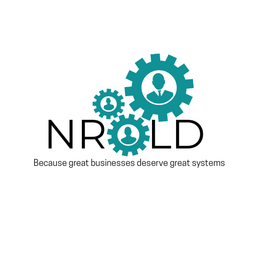The Creator Economy Playbook

The way we work is changing. More people turn their passions and unique abilities into real income. This shift creates what we call the "Creator Economy." In this new world, you can monetize skills online and build your own thriving online business.
You do not need to be a celebrity or a social media influencer. Anyone with a valuable skill can succeed. This action guide will show you a clear path. We break down the Creator Economy playbook into simple steps. You will learn how to turn your talents into digital income.
Step 1: Pinpoint Your Unique Skill and Niche
Before you start selling, you need to know what you offer. What are you truly good at? What do you love doing? What problems can you solve for others?
- Discover Your Core Skill: Think about your hobbies, work experience, or things friends always ask you for help with. Do you make amazing digital art? Are you great at organizing small businesses? Can you explain complex topics easily?
- Example: Leah loves teaching people how to organize their digital files. She's incredibly efficient with computer systems. This is her core skill.
- Find Your Niche: Once you know your skill, narrow it down. A niche is a specific group of people with a specific problem. You cannot serve everyone. By focusing, you become an expert for a certain group.
- Example: Instead of just "digital organization," Leah decided to help small business owners specifically with their "cloud storage and file naming systems." This is her unique niche. It targets a clear group and solves a defined problem.
- Check the Demand: Is there a real need for your skill in your chosen niche? Look at online forums, ask potential clients, or see what competitors offer. You want a skill that people will pay for.
- Keywords: unique skill, niche market, target audience, expertise, problem-solving, identify skills.
Step 2: Pick Your Monetization Method
How will you actually earn money from your skill? The Creator Economy offers many ways to get paid. Choose one that fits your skill, your lifestyle, and your audience's needs.
- Digital Products: These are items you create once and sell many times. They offer passive income potential.
- Examples:
- E-books: If you write well, you can create a guide.
- Example: A baker could sell an e-book titled "Your First Sourdough Starter: A Simple Guide."
- Templates: Create designs or documents people can fill in.
- Example: A graphic designer might sell Canva templates for social media posts.
- Online Courses: Share your knowledge through video lessons, PDFs, and exercises.
- Example: A fitness coach could offer an online course on "Bodyweight Workouts for Busy Parents."
- Presets/Filters: Photographers often sell these.
- E-books: If you write well, you can create a guide.
- Examples:
- Services: You sell your time and expertise directly to clients. This is often called freelancing or consulting.
- Examples:
- Freelance Writing: You write blog posts, website content, or marketing copy for businesses.
- Social Media Management: You manage a company's social media accounts.
- Coaching: You provide one-on-one guidance in areas like business, life, or career.
- Example: A business coach could offer virtual strategy sessions to startup founders.
- Virtual Assistant (VA) Services: You help clients with administrative tasks remotely.
- Examples:
- Content Monetization: If you create regular content like videos or blog posts, you can earn from ads, sponsorships, or affiliate marketing.
- Examples:
- YouTube Channels: You earn money from ads playing on your videos. Brands also pay for sponsored content.
- Blogs: You can place ads on your site or write reviews for products and earn a commission when someone buys through your link (affiliate marketing).
- Examples:
- Memberships & Subscriptions: Offer exclusive content or a community for a recurring fee. This creates recurring revenue.
- Example: A language teacher might create a private online community where members get new lessons weekly and practice speaking with each other.
- Keywords: digital products, online courses, freelance services, content creation, passive income, recurring revenue, online coaching, virtual assistant, affiliate marketing.
Step 3: Build Your Digital Home
Where will your audience find you? You need an online presence. This "digital home" shows off your skills and offers.
- Create a Website or Portfolio: A simple website gives you a professional home base. It helps you control your brand. You can use platforms like Squarespace, Wix, or WordPress.
- Example: A freelance writer creates a website that includes a portfolio of their articles, testimonials from happy clients, and a clear "Work With Me" page.
- Choose the Right Social Media Platforms: Do not try to be everywhere. Pick platforms where your target audience spends their time and where your content format shines.
- Examples:
- If you teach fitness, Instagram or TikTok might be best for short video workouts.
- If you offer B2B (business-to-business) services, LinkedIn is strong.
- If you are a visual artist, Pinterest or Instagram works well.
- Examples:
- Optimize Your Profiles: Make sure your profiles clearly state who you are, what you do, and who you help. Use keywords related to your skill.
- Keywords: online presence, personal brand, website development, social media marketing, digital portfolio, build audience, online platform.
Step 4: Create High-Value Offers
Once you know your method, you must create a product or service that truly helps people. Focus on quality.
- Solve a Real Problem: Your offer should be a solution. People buy outcomes, not just products.
- Example: Instead of selling a "100-page marketing e-book," sell "The Small Business Marketing Jumpstart Kit to Get Your First 10 Customers Online." The second option highlights the solution.
- Focus on Clarity and Ease of Use: Make your product or service simple to understand and use. Remove unnecessary steps or jargon.
- Example: Leah, the digital organizer, designs her templates to be extremely intuitive, with step-by-step video tutorials. Her clients can implement her system quickly.
- Show Your Expertise: People buy from experts they trust. Make sure your offer reflects your skill and experience.
- Keywords: high-quality content, value proposition, problem-solving solutions, product development, service design, clear offerings.
Step 5: Reach Your Audience and Market Your Work
Creating a great product is only half the battle. You need to tell people about it! This is where digital marketing comes in.
- Content Marketing: Create valuable free content that attracts your target audience. This could be blog posts, videos, podcasts, or social media updates. Give away useful tips related to your paid offer.
- Example: A career coach might write blog posts on "How to Write a Powerful LinkedIn Profile" or share short videos with "Interview Tips." This builds trust and shows their expertise, making people more likely to pay for a coaching session later.
- Search Engine Optimization (SEO) Basics: Use relevant keywords in your website content, blog posts, and product descriptions. This helps people find you through search engines like Google.
- Example: If you sell handmade pottery, use terms like "unique ceramic art," "modern pottery for home," or "artisanal clay mugs" in your product descriptions.
- Build an Email List: An email list is one of your most valuable assets. Offer something free (like a template or mini-guide) in exchange for an email address. You can then regularly share updates, new content, and promote your paid offers to them directly.
- Engage on Social Media: Don't just post. Ask questions, reply to comments, and build a community. Show up consistently.
- Keywords: audience building, content marketing, search engine optimization (SEO), email marketing, digital marketing strategies, organic traffic, community engagement.
Step 6: Launch, Learn, and Grow
Starting is important. But continuously improving is how you build a lasting online business.
- Start Small and Simple: Do not wait for perfection. Launch your first offer even if it's basic. You can always improve it later. "Done is better than perfect."
- Example: Instead of creating a 10-module course, launch a 3-module "mini-course" first to test the waters and get feedback.
- Ask for Feedback: After your first sales or services, ask customers what they loved and what could be better. Use this information to improve your offerings.
- Example: After a coaching call, send a simple survey asking "What was most helpful?" and "What could have been improved?"
- Track Your Progress: Use simple analytics tools (most website builders or social media platforms have them) to see what's working. Look at website traffic, sales numbers, or email sign-ups.
- Scale and Diversify: Once your first offer is successful, think about creating new products or services. Look for partnerships or collaborations to reach new audiences.
- Example: A freelance copywriter who is fully booked might create a "Copywriting Template Pack" to serve more clients passively, or partner with a web designer to offer combined packages.
- Keywords: launch strategy, customer feedback, analytics, scaling an online business, continuous improvement, growth hacking, diversification, creator journey.
This playbook gives you clear steps: pinpoint your skill, choose how to earn, build your online home, create value, reach your people, and then learn and grow. Action builds business. Start small, start smart—then scale.

This content is AI-assisted and reviewed for accuracy, but errors may occur. Always consult a legal/financial professional before making business decisions. nrold.com is not liable for any actions taken based on this information.


